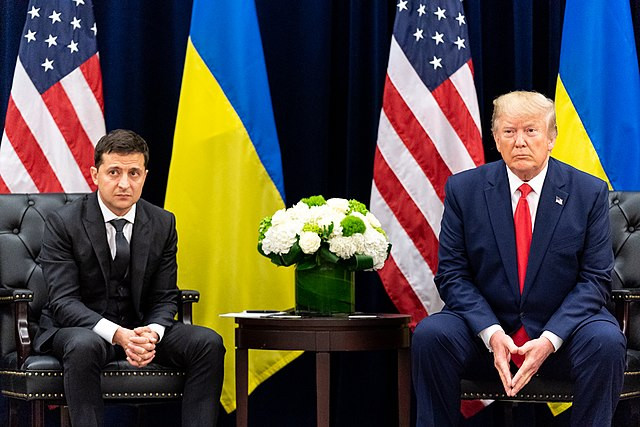Ukrainian President Volodymyr Zelensky said Wednesday he would hold direct talks with U.S. President Donald Trump following renewed Russian drone strikes overnight, despite Moscow's agreement to a Washington-brokered partial ceasefire. Both Russia and Ukraine reported attacks within hours of the Kremlin's pledge to halt assaults on specific Ukrainian infrastructure.
"Today I will have contact with President Trump. We will discuss the details of the next steps with him. We really had a good meeting of our teams in Jeddah," Zelensky said at a news conference in Helsinki, according to Ukrainian outlet Ukrinform. He noted that recent hostilities contradicted Russia's commitment. "It is such night attacks by Russia that destroy our energy, our infrastructure, the normal life of Ukrainians. And the fact that this night was no exception indicates that we must continue to put pressure on Russia for the sake of peace," Zelensky stated on social media.
On Tuesday, Trump and Russian President Vladimir Putin agreed to an immediate ceasefire targeting energy and infrastructure facilities, the White House confirmed. "We agreed to an immediate Ceasefire on all Energy and Infrastructure," Trump wrote on Truth Social, characterizing the move as the first step toward broader peace negotiations scheduled to begin in the Middle East.
However, the ceasefire appeared fragile from the outset. Ukrainian authorities in Sumy reported damage to hospital buildings from Russian drone strikes overnight, while Kyiv officials said 18 residences, 20 townhouse apartments, and 19 vehicles were hit. Moscow, in turn, accused Ukraine of launching a retaliatory drone attack on an oil depot in Russia's Krasnodar region. Kremlin spokesperson Dmitry Peskov said Ukraine showed no signs of reciprocating the limited truce, emphasizing the Kremlin's view that the ceasefire applies solely to energy infrastructure, Russian state outlet Tass reported.
Zelensky, appearing alongside Finnish President Alexander Stubb, dismissed Moscow's claims. "If the Russians don't hit our facilities, we definitely won't hit theirs," he said, according to the Associated Press. Zelensky welcomed a planned prisoner exchange between the two countries as a potential trust-building measure but remained skeptical of broader Russian intentions.
Putin's reported demands during his call with Trump included conditions that Ukraine not recruit new forces or rearm its troops during the ceasefire - terms Kyiv views as unacceptable and strategically detrimental.
Finland's President Stubb described the Trump-Putin dialogue as a "step in the right direction toward a full unconditional ceasefire" but underscored that Ukraine's sovereignty and future membership aspirations in the European Union and NATO must remain Kyiv's decision. "President Trump is a seasoned negotiator and he's driving this process forward right now, he's trying to stop the killing - ceasefire is Step one of that," Stubb said.
Moscow's longstanding demands, including Ukraine's renouncement of NATO ambitions and ceding of territories annexed by Russia, have consistently clashed with Kyiv's insistence on full sovereignty and security guarantees. The Washington-based Institute for the Study of War argued Wednesday that Putin's rigid demands indicate no genuine intent to negotiate. "The persistence of Putin's demands for Ukraine's capitulation demonstrates that Putin is not interested in good-faith negotiations to pursue Trump's stated goal of achieving a lasting peace in Ukraine," the institute said.




